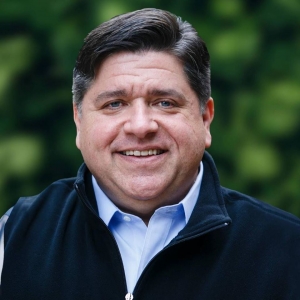
By Illinois Radio Network
SPRINGFIELD – A business owner in Carlyle suing Gov. J.B. Pritzker over his stay-at-home order said the state is trying to intimidate him.
Gov. J.B. Pritzker on Wednesday said the stay-at-home orders he’s extended multiple times that have kept parts of the state’s economy closed to the public for nearly two full months will be enforced.
“Businesses and individual professionals that are licensed by state agencies will be held accountable for breaching public health orders,” Pritzker said from his home in Chicago on Tuesday. “Local law enforcement and the Illinois State Police can and will take action.”
Josh Jondro owns The Dookie Set in Carlyle. He said Clinton County law enforcement told him they’re not enforcing the governor’s order. The Clinton County Sheriff didn’t immediately respond for comment.
Last Thursday, when Jondro said he opened the bar, he said state police showed up, threatened to tow everyone’s car and ordered the business to close. Jondro wasn’t there, but said he got a call from his sister-in-law’s phone. She was working that night. Though it wasn’t his sister-in-law on the line, he said, it was an Illinois State Police trooper.
He recalled the trooper told him the governor’s orders don’t allow him to be open.
“I said, ‘well that expired on April 8 legally,’ and he said ‘no, he extended it,’ and he goes ‘you can’t be open, this is a warning,’” Jondro recalled. “‘If you open again the state is going to take your liquor license,’ or something.”
Illinois State Police said they were notified by the Clinton County Sheriff’s office that The Dookie Set was open and operating on May 8.
“ISP responded to the business and took the approach that ISP has taken consistently throughout this crisis – talking with the owner about the importance of the executive orders in protecting the public health by preventing the spread of COVID-19,” a statement said. “ISP provided the owner with documents, including a cease and desist order.”
“In responding to calls about open bars, ISP works with the Illinois Liquor Control Commission which has authority to take action on the state liquor license of an establishment found to be unlawfully operating,” ISP said. “The ILCC’s cease and desist order affords a licensed liquor establishment the opportunity to come into compliance before the ILCC moves forward with due process which, in this type of instance, could include imposition of a fine, or revocation or suspension of the establishment’s state liquor license issued by the ILCC.”
Jondro said the state was “definitely trying to intimidate” him.
“It’s not really working, just because I’m somewhat familiar with the laws and the constitution,” Jondro said.
He said he hasn’t been contacted by the Illinois Liquor Control Commission. He also said he hasn’t heard from local public health officials.
“If anybody can take it, it’d be the health department, but they’ve got their procedures they follow as well, they just can’t say ‘the governor says,’ ” Jondro said.
The lawsuit Jondro filed against the governor in state court has been moved to federal court at the state’s request. He called the move a delay tactic. He also said he is considering opening up this weekend.
“The public outcry, they’re all for it, they’re like we need to be open, get these businesses open, it looks like the county might open anyway,” Jondro said.
While the governor has said state and local police will enforce his extended stay-at-home orders, what happens when local law enforcement won’t?
A spokesperson for the Illinois State Police said the agency is seeking voluntary compliance with the governor’s orders and noncompliance could result in criminal and civil sanctions.
In Kankakee County, Sheriff Mike Downey said he isn’t going to enforce the governor’s orders. If Illinois State Police do, he said he hopes his department and the ISP district in his jurisdiction continue with their positive relationship.
“Our relationship with our [ISP] District 21 is really good, so I don’t see that as an issue,” Downey said. “But I think obviously they’re getting their marching orders from the governor.”
State Rep. C.D. Davidsmeyer, R-Jacksonville, said while ISP leadership may be in lockstep with the governor, he suspects rank-and-file officers aren’t.
“The executive order, I think it’s gone too far, but the state police don’t want to step in,” Davidsmeyer said. “They don’t want to be the COVID police.”
Downey said he hopes ISP gives local law enforcement the courtesy to deal with issues “as they come.”
“No arrests have been made,” ISP said in a statement. “The vast majority of complaints continue to be handled by local health authorities, and state licensing agencies in cooperation with [Illinois Department of Public Health].”
Illinois Radio Network can be reached at [email protected].






